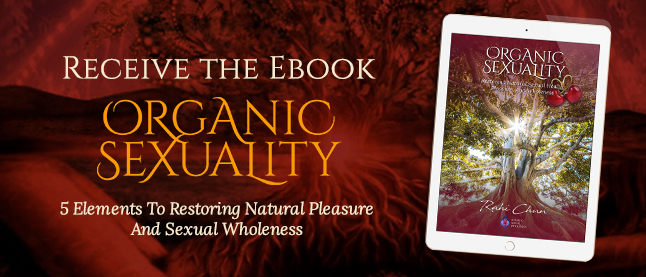
How “The Wheel of Consent” Invites an Ever-Deepening Embodiment for Intimacy, Pleasure, and Relationships.
Share this episode:
Amongst Somatic Sex Educators and bodywork practitioners, Dr. Betty Martin and her pioneering work involving the subtle yet powerful and necessary distinctions within The Wheel of Consent are legendary. Her Like A Pro workshops, now taught worldwide by Wheel of Consent certified practitioners, invites participants to engage in a somatic deep-dive into embodying these subtle distinctions for their own touch and consent awareness & mastery. I had the pleasure to experience her facilitation of Like a Pro and explore the fascinating endless discoveries offered by the Wheel practices. Now her body of work has been distilled and transmitted into “The Art of Receiving and Giving: The Wheel of Consent” written with Robyn Dalzen for all to explore the gifts, healing, and expansive wonders of our own touch embodiment, empowerment and self-authority.
Today’s Guest:
Betty has had her hands on people professionally for 40 years (some of it legal and some of it questionable): 30 years as a Chiropractor and then 15 years as a Body Electric School trained Sacred Intimate. Other goodies include Neuro-Emotional Integration, Educational Kinesiology, Sexological Bodywork, Taoist Erotic Massage, Kashmiri Tantric Massage, and good ‘ol sex work. She describes her long career as basically Surrogacy with variations. She loves it. These days her passion is training other hands-on practitioners in consent skills and how to teach their clients empowered choice – so they can stop doing what they think they are supposed to do, and start doing what it is they want to do. Big difference.
Her book, which is just being released, is “The Art of Receiving and Giving: The Wheel of Consent.” Her class for practitioners is called Like a Pro and it has taken her all over the world. She is a long-time Cuddle Party facilitator and is part of the team that trains, certifies and supports new facilitators.
We explore:
“It’s not love, it’s not sex, it’s not giving, it’s not receiving… nobody’s trying to make you feel good, you’re not trying to make anybody else feel good… there’s no meaning to it – at all.. It’s just – can this nerve cell talk to this brain cell – that’s it”
How playing the 3-Minute Game and exploring these two questions literally, “What do you want me to do to you?” and “What do you want to do to me?” – with hundreds of people lead Betty to developing the Wheel of Consent.
How the invitation “How do you want to touch me?” is often met with “I want to touch you the way you want to be touched” when our hands are not awakened to receiving pleasure.
How “Waking Up Your Hands” is essential for developing the capacity to listen for what our touch receptors desire, and in turn – leads to waking up the touch receptors of the whole body.
How when we’re not able to enjoy sensory pleasure, the only pleasure that can be derived is from the response of our touch by the other person.
How tears of grief, delight, and aha’s are common when the touch/receptivity circuitry comes back online – and our fundamental human capacity for receiving pleasure reawakens.
How The Wheel of Consent invites a labyrinth into our inner world of sensations and pleasure due to its safe and clear structure for agreements, negotiation, and consent – providing the nervous system the ability to continually down-regulate whilst experiencing deeper states of connection, pleasure and self-intimacy.
How writing the book “The Art of Receiving and Giving” became a 13-year journey and involved Betty’s personal reconciliation with the notion that a “nice girl” isn’t supposed to know what Betty has explored in developing her expertise, wisdom and insights.
How universal it can be to go along with what we don’t like, and how when the body discovers it can be touched in ways it truly desires and has yearned for, it can change life-long behavior patterns of touch, intimacy and pleasure.
Rahi: Welcome to Organic Sexuality, where we explore the restoration of pleasure, the reclamation of sexual sovereignty and the realization of our embodied sexual nature. An invitation to honor the pleasures of your body by embodying the pleasures of your nature. I'm your host, Rahi Chun. I'm a certified somatic sex educator, sexological bodyworker and creator of Somatic Sexual Wholeness. Today. It's a great honor to invite Dr. Betty Martin to discuss her pioneering work, The Wheel of Consent and its subtle yet powerful distinctions involving touch boundaries and consent, and how creating clear agreements invites a safety within the nervous system to truly receive sensation and, in so doing, reconditioning our touch receptors to experience the kinds and quality of touch our body truly desires with trust and sovereignty. She shares how her understanding of The Wheel of Consent evolved, the importance of waking up our hands to receiving, common obstacles to our ability to receive touch, and the journey of distilling and transmitting this critical work into book form with the newly released "The Art of Receiving and Giving: The Wheel of Consent" written with Robin Dalzen. Rahi: Really, really thrilled and honored to be inviting Dr. Betty Martin to the show today. She is responsible for this pioneering body of work called The Wheel of Consent. She created The Wheel of Consent, is a co-founder of the School of Consent, which provides trainings and experiences supporting a somatic empowerment, safety, connection by clarifying the experiences and dynamics of touch, consent, boundaries, and they have now trained facilitators that lead this really critical body of work all over the world. She's also author of the very anticipated upcoming book called "The Art of Receiving and Giving: The Wheel of Consent." She is also a sex and intimacy coach, formerly a chiropractor, a sexological bodyworker, a sacred intimate. Betty, thank you so much for being here with us today. Welcome. Betty : Thanks for having me. Rahi: Yeah, absolutely. Absolutely. So I feel like the wheel's really inspired such an awareness and exploration of the subtle distinctions of touch and consent - certainly bodywork professionals all over the world. I'd love to, as a jumping off point Betty, to ask you what some of those really pivotal experiences were that it inspired the clarity and distinctions of the wheel of consent. Betty : That's a great question. I'm in my mid forties, back in the 1990s, I attended some workshops around sexuality with the body electric school. And and one of those among several was called power surrender and intimacy. And it was about using practices and self-awareness, and we played a game there it's called the three minute game and the three minute game consists of two questions that two people take turns asking each other and the questions are - what do you want me to do to you for three minutes? And what do you want to do to me for three minutes? Well, that was fun. Betty : That was really fun and we played a few rounds of it. And later when I started seeing clients, I took that game off the shelf and dusted it off and brought it out to work with clients because I thought, well, I had been a chiropractor, so I knew how to take a history and sort of make a plan for a client. And I thought, well, as a way to transition from the talking history, taking part of the session into the touch part of the session, I thought, well, this'll give me a sense of how comfortable people are, what their skill levels are. It would just make a nice transition and it did. And it showed me a lot more. And, and so I'd say the pivotal thing for developing the wheel was first of all, learning the three minute game. And second of all, having hundreds of people to play it with because I had all my clients. Betty : And I think if it, if I had just played it with a partner too, I would not have noticed what I noticed. But when you ask a hundred people, how do you want me to touch you? Or what do you want me to do to you for three minutes? You find a lot of answers. And mostly you find that people are confused or suspicious or don't know what they want or are confused about who it's actually for. You ask someone, how do you want me to touch you? And they say, well, you could such and such, I guess. Well, I could, but that,wasn't the question - I asked what you wanted. And so people were confusing what they wanted with what was kind of okay. And good enough, which is a very different question. And, so a lot of it was just being able to play with a lot of people that really showed me that. Betty : And likewise, when I would ask, how do you want to touch me? Then the people would get really confused and they'd say, well, you know, I want to touch you the way you want to be touched. Well, that's nice, but this is for how you want to touch me. So I think one of the reasons why the clarity sort of clicked around these questions was that I took them so ridiculously, literally. And another one was that I had lots of people to play with. Um, yeah. And so when I say, how do you want me to touch you? It's a very literal question of asking what you want and seeing how confused and lost people would get with being asked what they wanted. And I came to appreciate how hard that is and then, you know, seeing it in my own life as well. Betty : Like when someone asks me what I want, I maybe, I don't know, or maybe I'm embarrassed or maybe I'm too shy or maybe, or maybe I just don't know what it feels like to have something that actually is for me instead of, you know, instead of having an agenda about it. So I I'd say that it's not that the wheel of consent brings out any particular nuances of consent. There are many people who do that better than I do, but it brings out this kind of stark clarity of who is this, actually, for, if I'm asking you what you want, then it's for you. And I of course have my limits and my boundaries of what I'm willing to do for you. But it's for you and you get to choose and you get to notice and you get to change your mind and you get to stop when you want to stop, because it's for you. And that, and that distinction of who it's for turned out to be really hard for people, then it kind of surprised me. And then of course you see it in your own life where I get confused about it in my own life, you know, I think we always teach what we most need to learn, so, Rahi: Mm mm mm. Wow. So you know what, you're speaking to underscores the kind of the wealth of awarenesses that are awaiting us in the practice of the wheel, in the practice of the three minute game, because honestly, like, you know, like when we look at the visual diagram, it makes sense, like things click intellectually, but that is like, that's like planets away from actually clicking in our touch receptors. And especially what you're underscoring is like, you know, what do my hands really want to experience? Yeah, that's so huge. And, you know, I mean, I'm assuming that's why there's such an emphasis on the waking up the hands practice within the wheel, because without those touch receptors, sensing and listening for what its authentic desires are, some of these quadrants really are, are become a mental exercise. Betty : Yeah, absolutely. Absolutely. One time I was working with a client who, so, and I'm asking them, how do you want to touch me? I'm asking them what's about what they want. It's not about giving me something that they think I want. It's about what do you want? So it's about what your hands want to do. And I had a client who was just really struggling with this and was just kind of glued to my face to see if I liked this. And he was, he happened to be stroking my arm and I could tell that he was trying to do it for me. And so I'm trying to verbally coach him, you know, feel for the shape, feel for the texture, you know, feel for what is pleasant to your hand. Because I thought, well, people know how to do what's pleasant to their hands. Betty : They just needed a little reminder that it's okay to do that. So he just was stuck. He just could not get it. And so I reached over, there was a Riverstone, had some interesting textures on the counter and I said, so I just reached over and picked it up. And in my mind, I said, okay, let's see what you can do with this thing when there's nobody there to give to. So I handed it to him and he couldn't really feel that either. I mean, he knew it was a stone, but he couldn't be attentive to the sensation. He couldn't take any enjoyment out of the, the texture of it, you know? And that was a kind of an aha moment for me because I realized, Oh, it's not that he can't feel my arm. It's that he can't feel anything. Like he can't, he can't use his hands to create anything pleasurable in his hands at all. Betty : And that's when I realized, Oh, that's like the neurological prerequisite to being able to touch a person for your own pleasure is to be able to touch anything at all for your own pleasure. And so I started doing that with other people and eventually now do with everybody because I've found that most people to some degree, their hands are kind of - It's like our hands are instruments to accomplish things. And what we need to do is to switch them to a source of pleasure to ourselves. Like, can I feel this stone or this pan or this feather, just for the pleasure it creates in my hand. And once that clicks, which takes anywhere from a few minutes to a few weeks, once that clicks, then I can feel you. And now I can really feel you. I can feel the texture. Betty : I can feel the shape. I can feel the warmth. I can feel the enjoyment of this curve of your elbow here, you know? Um, so it was, it was kind of by accident that I came upon the waking up the hands and I soon realized that, Oh, this applies to everybody. Like we all, we all have to re awaken that sensory inflow. And of course, you know, the neural information comes in from our hands, comes up, our spinal cord into our brain, and it connects with the pleasure centers and bing! They light up, you know, that if the neurological connection can't be made to, from the data to the pleasure center, that's when there's just something wonderful that's missing and it can be, it can be reclaimed. It's quite easy. You just sit down and take local objects around you and feel them up, slow down and it'll wake up. Rahi: Yeah. I mean, it's a great reminder that, well, a couple of things, one that this waking up can be done with the whole body, but I suspect Betty that because it's such a huge collection of nerves in the hands that when the hands are woken up, kind of those touch receptors of the whole body kind of like, cause it's a huge network, like through that kind of wisdom of reception wakes up touch receptors in the whole body. Yeah, Betty : It's true. But what I noticed is that when your hands get it, you get it. It just kind of clicks and, um, yeah, I think that's true. Rahi: So it's a very specific way of waking up the hands that you instruct, of making sure the body is in a passive receptive state. And so that the body is used to, and the nervous system is used to not engaging or being so being in the doing state, but actually being in a passive receptive state, which kind of changes the whole body's expectation and experience of the sensation. Betty : Yeah. Yeah. I found as I was taking people through this, I found that if you were sitting forward or sitting up like in a yoga position and you had your hands out in front of you and it's like, you're engaging the muscles in your trunk, in your arms, it's just like, your brain can tell when you're working hard. And so we have to stop you from working hard and to do that, you just lean back, put your hands in your lap, pillow on your lap and, and slow down, slow way down and slow down some more. Yeah. Rahi: And it's this process that leads to a somatic body-based understanding of really who's the touch for, because without that kind of awareness and listening, then it sounds like, like the, the client you had before, it's just kind of like numb to varying degrees. Rahi: If I'm running my hand down your arm and it's, if we'd agreed that it's for me, may I feel your arm? And you say yes, now to me, then I can feel the shape and the texture. And it's quite lovely and I can enjoy it. But if my hand doesn't know how to take in any data and enjoy it. Then I can touch your arm. And even though we might have agreed it's for me, it doesn't feel like it's for me because it's not enjoyable. And so the only thing that I have left is to try to make it pleasant for you, because I don't know how to feel pleasant for me. I just don't know how my hands aren't awake. So the only thing that's left is to try to make it pleasant for you. Rahi: Right. And I think that's so profound. It's like, it's so profound to recognize that when we're not able to enjoy the sensory pleasure, the only pleasure that can be derived is from the response of that touch by the other person. And I think this kind of speaks to, I mean, it kind of saddens me to recognize this, but I think it's really important that it speaks to our conditioning from when we're young as children, it's like, you know, the degrees to which engagement of touch for us wasn't necessarily really, for us, it might've been conditional. It might've been obligatory. It might've been, you know, and in some instances just abuse or punishment. And so how numb are we really to our touch receptors and their awareness of when we are receiving? Yeah. So, you know, on that, on that note, Betty, I feel like the rewiring that's happening with the waking up of the hands it's an enormously healing experience because we're reconditioning touch receptors and experiences of touch that, you know, may have been abusive or may have been unsafe. Betty : Yeah. The practice of waking up the hands you do just with yourself and objects, you don't need anybody else there. Um, and one thing I think that that kind of makes it what it is and makes it useful. And of course, I've just geeked out on this to no end. And it's just fascinating to me once I started noticing it, is that because there's nobody else there. It's not about anything. It's not love, it's not sex. It's not giving, it's not receiving, nobody's doing anything to you. Nobody's trying to make you feel good. You're not trying to make anybody else feel good. It's just, there's no meaning to it at all. It's just, can this nerve cell talk to this brain cell? That's it. So it's a very fundamental human circuit that for most people has to some degree kind of gotten rusty. And so as it sort of comes back online, all kinds of ahas come up, feelings come up, tears are very common. Betty : Tears of grief often are pretty common, um, relief, delight as well as confusion and fear. And some I've had people say, gosh, this makes me feel like I'm selfish, but it doesn't make any sense. Why would it feel selfish? And so it's kind of - working on that, that circuit, that is the sort of, this is your relationship to pleasure in the very fundamental way. And is it okay to feel pleasure? Does it feel shameful to feel pleasure, and on defining pleasure broadly here, ou know, do I feel sad? Do I feel threatened? And also you, because you are the one who's doing it with your hands, you can stop any time. If it feels like it's a little too much, which it might just put the thing down, like there's nobody here to please. It's just - you're experimenting and you're, you're taking action. That creates something that's enjoyable to you or at least interesting to you. And so I think one reason that's so powerful is because that's such a fundamental human capacity to enjoy our sensations and it's one that's got interrupted. Of course. So as it, as that, those nerve cells start talking to each other, again, the ahas come up, the feelings come up. It's turned out to be quite a big process, which I had no idea that's where we're going when I stumbled upon that. Rahi: Well, it's, I feel like it's an invitation to this kind of labyrinth of our inner world, which is, which is so exciting because I feel like the structure of the wheel of consent offers a sense of safety because we all kind of know it's all out in the open, there's no surprises. One person asks, how do you want to touch me? How do you want to be touched? Uh, there's a room for negotiation and you know, in the wheel, there's a process to really feel into what your heart's desire is. And because that sense of safety is there. It allows for more, it allows for the nervous system to feel safer in receiving touch. And then as the nervous system down-regulates, it opens up to more sensation and more pleasure. I mean, it's this kind of continual exploration of new terrains as the nervous system feels safer and safer and receiving touch and exploring touch. Rahi: I think Rahi: That's, I think it's like a fascinating labyrinth. Um, and I, I love it for that reason. Yeah. So, you know, as I mentioned at the outset, uh, your book is coming out soon in February, and I'm curious how the process of putting into words often, what is very challenging and is based on the language of touch, not the language of, of words really. Like how did that, I'm curious in the process of putting it on paper and organizing it in a book, what was your process like? And were there even, you know, different or new realizations that came to you about, about the wheel? Betty : Um, yeah, the writing, the book has been a 13 year process. Wow. And when I first started in Oh seven, I thought, Oh, I'm just gonna write down this cool little, two questions and show the wheel and it'll, that'll be cool. And it'll be about a hundred pages. And as I started to work on it, it turned out that it was more wanted to be said. And it also turned out that, it was very difficult to write, not so much because this is sort of getting off the, off the line, but not so much because the topic was difficult. It was because my feelings that came up around writing it. First of all, Betty : A nice girl is not supposed to know the things that I know because I was doing sacred intimate work, sex work. And that's where all this came from. So, you know, a nice girl is not supposed to know this stuff. And if I do know it, I'm sure not supposed to tell it. And if I tell it, I'm sure not supposed to like make it out in public. You know, so all this stuff would come up and I'd sit down to write and I'd cry for an hour. And then I get up and write. And then the next day I'd sit down to write and I'd cry for an hour. And I get up to write and this went on for years and I took, at some point I took a year off and I frequently took a few months off because I was traveling and teaching. Betty : And at one point I thought I need someone if I just had someone to stand next to me in the room and help me think this out. Um, we, you know, what words go where then I could do it. Well, I didn't have anybody to do that, but I called a few friends and I said, Hey, I need some help. Would you just listen to me for a few hours every week? And how many hours do you have and when do you have it? And so I had three or four friends who I would call every week and just talk out loud through the book and they saved my butt. And one of them invited me to come to her home for six weeks. Um, and so, you know, I just, I could not have done it without, without the help. Betty : And then the last couple of years, my co-teaching colleague, Robin Dalzen came on and helped me get it, get it over the finish line. But it was very, very difficult, not because of the subject, but because of my own feelings about how dangerous it was to speak up, which is just sexism mainly. And, you know, so it just took a lot of tears and a lot of support, lot of support. Yeah. And then, you know, after 10 years or so of that, it no longer, I no longer have those tears about it. It's become quite easy because I cried them all. But, um, now I'm just really tired of it - I'm just on the tail end of it now. I'm working on the index this week. Rahi: Good good. Betty, that's so, I mean it's touching and moving and, a profound kind of commentary on our society as well. The process of, you know, what you describe, I feel like it probably also, I mean, you have your very, very specific, unique journey, just an incredible journey. But, but I wonder if that kind of also, I mean, I probably reflects a lot of people who practice through the wheel and come up with their own different levels of wanting to hide and shame and acceptance and, you know, kind of declaring ownership of, you know, what they want and who they are and what their lives are and what their body wants. Betty : Absolutely. Absolutely. And I think that's one, one reason why it's, it can be so challenging and so liberating because once again, we're, we're dealing with the fundamental circuit of human nature, which is noticing what we want and asking for it. And yet how many of us really were rewarded for that as kids and were treated well. And, you know, I don't know anybody who doesn't struggle with that sometimes. And so, yeah, it's, it can be very intimidating and it can be a huge relief and completely liberating to discover that, Oh my gosh, there actually is something that I want and, Oh my gosh, I actually can ask for it and I can ask for it right out and straight, right in the light of day - is just incredibly liberating. And then as a practice, you're prep, you're playing it with a peer and you're taking turns and it's about touch. It doesn't have to be about touch, but that's how I learned it. And it's also, I think it's a great way to learn it because it's somatic - you learn things, you learn things with your body that you just can't think of it in your head. Rahi: Exactly. And, habits and behaviors and conditioning can get reconditioned so efficiently through our body. And it's just, you know, for listeners who have never played the three minute game or are not familiar with the wheel of consent, it can involve like a huge range of touch from just one's hand to, you know, I mean, lovers can use it as foreplay, but I mean, there's a wide range. It could be as platonic as a head rub or a back rub or an arm or elbow rub. But once again, it is reconditioning the messages that really go deep into our nervous system and our, and our bodies, our psyches, really, when we're very young about what's allowed and what's not allowed and what may be punishable and what may be sinful and all of that stuff. Betty : I think one of the things that surprised me most about how we're conditioned you're talking about as young ones was how universal it is to go along with stuff that you don't want, or like, even when it's your own turn. So somebody may say to me, how do you want me to touch you? And I say, Oh, well, you rub my head. So they're rubbing my head. It's not quite the way I like it, but, you know, I don't want to that, blah, blah, blah. And so while I kind of, you know, it's kind of, okay, I'll just put up with it. Why on earth would I do that when it's my turn to have it the way I want it. And yet almost everybody will do that. And we think, well, there's something I'm supposed to want. Or like, and if I don't like it, there's something wrong with me or I need to change my attitude. So that I like it better. Um, yeah, that, that kind of surprised me is how, how, um, universal that is - just going along stuff that we don't really like. Rahi: Yeah. And so much of what you just described happens all the time in sexual intimacy, whether it's with, whether it's with married couples, who've been together for decades or people dating for the first time. I mean, there's so much, conditioning one, you know, resistance to receiving or fear of receiving, as well as, you know, self image around sexual identity and pleasing the other and all of that. So this brings me to a question because, you know, I know that you also, you know, your sex and intimate coach and you work with couples. I'm curious when you're working with couples, the resistance to engage in and exploring some of the conditioning, do you see it pretty equally in both genders or there's one gender have like more of a challenge than the other? Betty : I think on average that the genders may have different challenges, but you'd see the same that doesn't, we're people first and foremost. And so whether you're a man or a woman or transgender or non binary or whatever, the challenges, yeah. You're going to have challenges, you know, things are going to come up and the conditioning, there are themes that come tend to come up very often for men and for women, but it varies by the person Rahi: Varies by the person I am. If you could share some of those themes that you've observed over the years, you know, the reason I bring this up Betty is because, you know, I was in conversation with one of my colleagues who a somatic psychotherapist, and started working with couples like in groups and, you know, married couples. And she found that there was so much more resistance with the husbands. Um, I mean, in this situation, they were all married and she was trying to introduce kind of, kind of new conditioning, new patterns of touch essentially. Betty : Well, I imagine that part of that reason why men tend to be more resistant is because little boys are taught not to feel, don't feel your fear don't feel your grief, you know, angers may be okay, but just don't feel especially anything that's tender. And so it just feels incredibly vulnerable and foreign to have these kind of tender, vulnerable feelings. So I imagine that's probably why. I'd say a very common theme among women is to not know that it's possible to be touched exactly the way they want, because most women have been touched by usually by men. Most women have been touched in ways that were not inspiring, but they just kind of have to go along or it's felt like they had to go along or chose to go along. And so very often when a woman discovers it's possible to be touched in the way she wanted, like such a thing exists in the known universe. Betty : It's a huge revelation often, that, Oh my gosh, that means I get to have what I want, like in her body, she didn't even know what that felt like. That's very common sometimes among men, but it's among women - It's endemic Among men, one of the things that tends to be most challenging is waking up the hands. Men very often had a much, have a much harder time with that waking up the hands. And I don't think it's because they have any fewer nerve endings in their hands. I think, again, it's because of the conditioning of little boys are taught not to feel. And so if you're going to feel things with your hands, you're also going to feel things emotionally and that's - we ain't going there. So, um, um, so men very often have a harder time waking up their hands, women usually easier. Betty : And until your hands are awake, you can't have that experience of touching another person for your own pleasure. And so that whole segment or quadrant becomes difficult for men. And the shadow of that quadrant is perpetrator, groping, assault, rape, you know, all the horrible things. And so if you don't understand the consent piece, you look out that quadrant and you go, I'm not going there. That's, you know, I'm not that guy, I'm just not going to do that. And so that tends to be harder for men than for women. I mean, again, there's variation, but on average it tends to be, Rahi: Yeah, that's really, really profound. And it makes so much sense that without those sensory receptors being turned on without being able to feel that they there's is a tendency to go into the shadow side. So each, so for our listeners, each quadrant, they, each quadrant has shadow aspects of when one is when a quadrant is not being fulfilled. Then there are other shadowy ways of trying to experience that fulfillment. Yeah. Betty : Shadows, essentially the action's happening, but the consent isn't happening. Mm Hmm. That's a whole another talk. Rahi: That is, and it's also profound what you shared about, you know, the tendency for a lot of women to be so conditioned and used to not experiencing what, what it is. Their body really wants almost like a passive, I don't know what the word is, passive, uh, not compliance. Betty : It's like acquiescence. Yeah. And the thing is, it's not too surprising that we might not know what we want all the time or something. That's, that's fine. That's not surprising at all, but to not know how to experience something that is actually for you, because you've never had it. That's what was surprising about it. Rahi: Mm mm. That's really beautiful and profound. And, and these are the kinds of experiences that practicing the wheel really offers. Um, because it's a safe structure. It's a really clear structure. And, you know, whether it's with a lover or a platonic friend, it's really, you know, kind of an endless exploration in, you know, what touch can provide. I feel like it's like developing a language like a nonverbal - like a touch language, essentially. And Betty, wouldn't she say, It's, it's never ending. Betty : Yeah, absolutely. It's never ending. I'm still learning stuff about myself in playing. Yeah. Rahi: Yeah. And that's kind of the fun and fascination about it. It's like this endless because as the nervous system feels safer and down-regulates, and just it's available for more pleasure and sensation. Betty : Yeah. Yeah, absolutely. Rahi: Um, that's so great. So, so the book is coming out in February and remind me of your, cause I know you have a personal link and then is it the school of consent.com? Betty : My personal site is Betty martin.org and the school of consent where we do our trainings school of consent.org. And the book is you can get it from either of those, but the book is wheel of consent book.com, Rahi: Oh, WheelofConsentBook.com. So, you know, on both your personal, Betty Martin website, as well as the school of consent, there's a page of like hours and hours of instructional videos that really breaks down the wheel and how to engage with the wheel and,, kind of subtle awarenesses of what you may encounter with each quadrant. It's just incredibly informative. So encouraging people to check that out and the facilitators training, is that online now? Or is it in person or both Betty : It's online, it's been online. Well, we have a training that's for practitioners that has been in persons five day training. And, we haven't done that since last February and we're starting an online version of that this February. Yeah. We're full already, actually it's December now we're full. Uh, but there'll be more, yeah, you can, if you're interested, go to put yourself on the newsletter, we'll let you know. Rahi: Great, great. Um, for listeners, I feel like, you know, and the work that I do, ,with clients who've experienced sexual violations or sexual trauma, that restoration of the voice, the consent piece is so hugely restorative to the whole experience of reclaiming your sexual sovereignty. It's like once the voice can, well, once the body has the awareness of identifying its wants and what it doesn't want, and then has the practice of voicing it and then somatically experiencing the effect of that voice, that empowered voice it's, it's like a new kind of somatic awareness or software being installed into the sensory receptors. Betty : Yeah, absolutely. I couldn't agree more. Yeah. Rahi: Betty, thank you so much for the wheel, your work and for, and for really courageously sharing your knowledge and the body of your work and your experiences with all of us. Betty : You are so welcome. Thanks for having me. Rahi: Notice what this conversation brings up for you in your body. Are there areas of consent and boundaries in your personal or professional relationships that can be clarified, that need to be communicated, that deserve to be honored? Are there areas of consent and boundaries with colleagues, friends, or lovers that your body needs to clarify, communicate, and honor,? How easy is it to ask for what your body really wants to receive? How easy is it to identify what your body really wants? Rahi: Is there anything any part of your body wants to receive from you right now? Rahi: In the way of touch, attention, cooperation, or understanding Rahi: In the next episode, we welcome Violet Lange, expert in dating, intimacy, and relationships, who shares very candidly about her journey as a survivor of past sexual abuse, and the pivotal turning points in her journey, - in the restoration and reclamation of her body sensations, sexual pleasure, and embodied sovereignty. And her insights as she now holds sacred space for the Pleasure Path for successful women all over the world. If you enjoyed this episode, please subscribe, share with your tribe, or leave a review. By subscribing atorganic sexuality podcast.com, you'll also receive additional insights from various episodes, as well as the free organic sexuality ebook. Until next time, take care. Speaker 5: [inaudible].
Enter your name and email address below to receive insights behind each Organic Sexuality Podcast episode and the ebook Organic Sexuality, 5 Elements to Restoring Natural Pleasure And Sexual Wholeness
Get Podcast Updates
Featured Episodes
With some of the wisest Somatic Sexologists in the Field.
Dr. Aline LaPierre
Creator of Neuroaffective Touch Therapy and author of Healing Developmental Trauma
Susanne Roursgaard
Psychotherapist/Sexologist/
Devi Ward Erickson
Founder of The Institute of Authentic Tantra Education
Dr. Liam Snowdon
Co-Founder: Somatic Sex Educators Association
Kimberly Ann Johnson
Author of The Call of the Wild & The Fourth Trimester
Dr. Ellen Heed
STREAM: Scar Tissue Remediation and Management
Keli Garza
Founder of Steamy Chick & The Peristeam Hydrotherapy Institute
Kris Gonzalez, L.Ac.
Founder of The Way of Yin
"Coocky" Tassanee Boonsom
Founder of Loi Kroh Traditional Thai Massage School
Dr. Betty Martin
The Wheel of Conset & Author: The Art of Receiving and Giving
About the Show
We explore the restoration of pleasure, the reclamation of sexual sovereignty, and the realization of our organic sexual wholeness. We engage with leading somatic therapists, sexologists & sexological bodyworkers, and holistic practitioners worldwide who provide practical wisdom from hands-on experiences of working with clients and their embodied sexuality. We invite a deep listening to the organic nature of the body, its sexual essence, and the bounty of wisdom embodied in its life force.

Rahi Chun
Creator: Somatic Sexual Wholeness
Rahi is fascinated by the intersection of sexuality, psychology, spirituality and their authentic embodiment. Based in Los Angeles, he is an avid traveler and loves exploring cultures, practices of embodiment, and healing modalities around the world.












